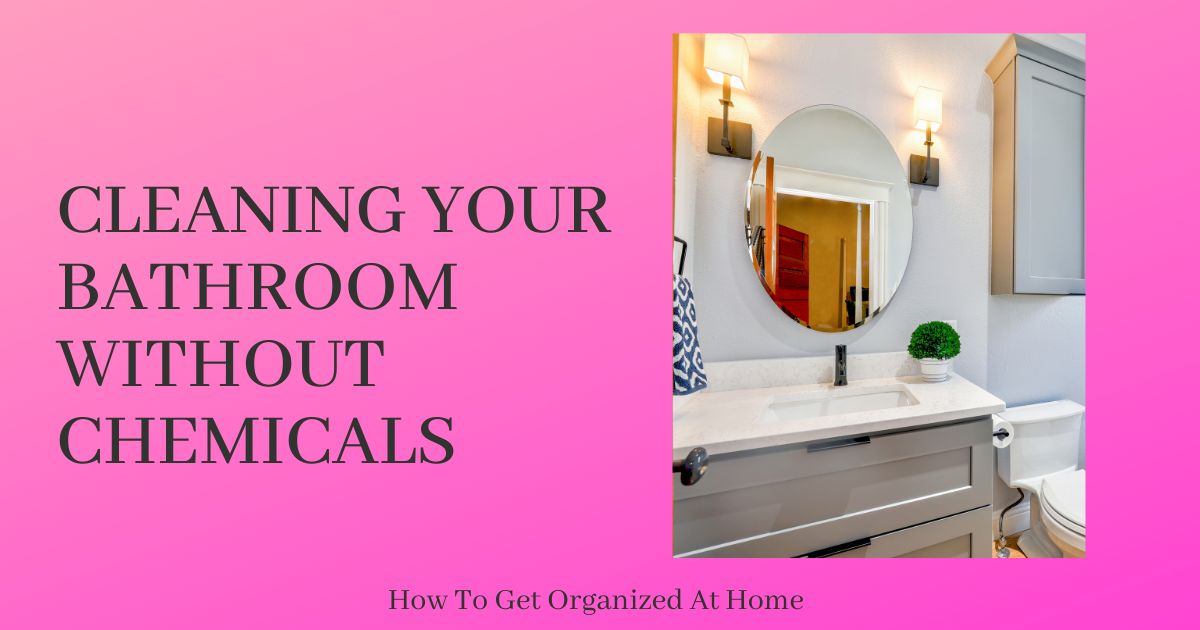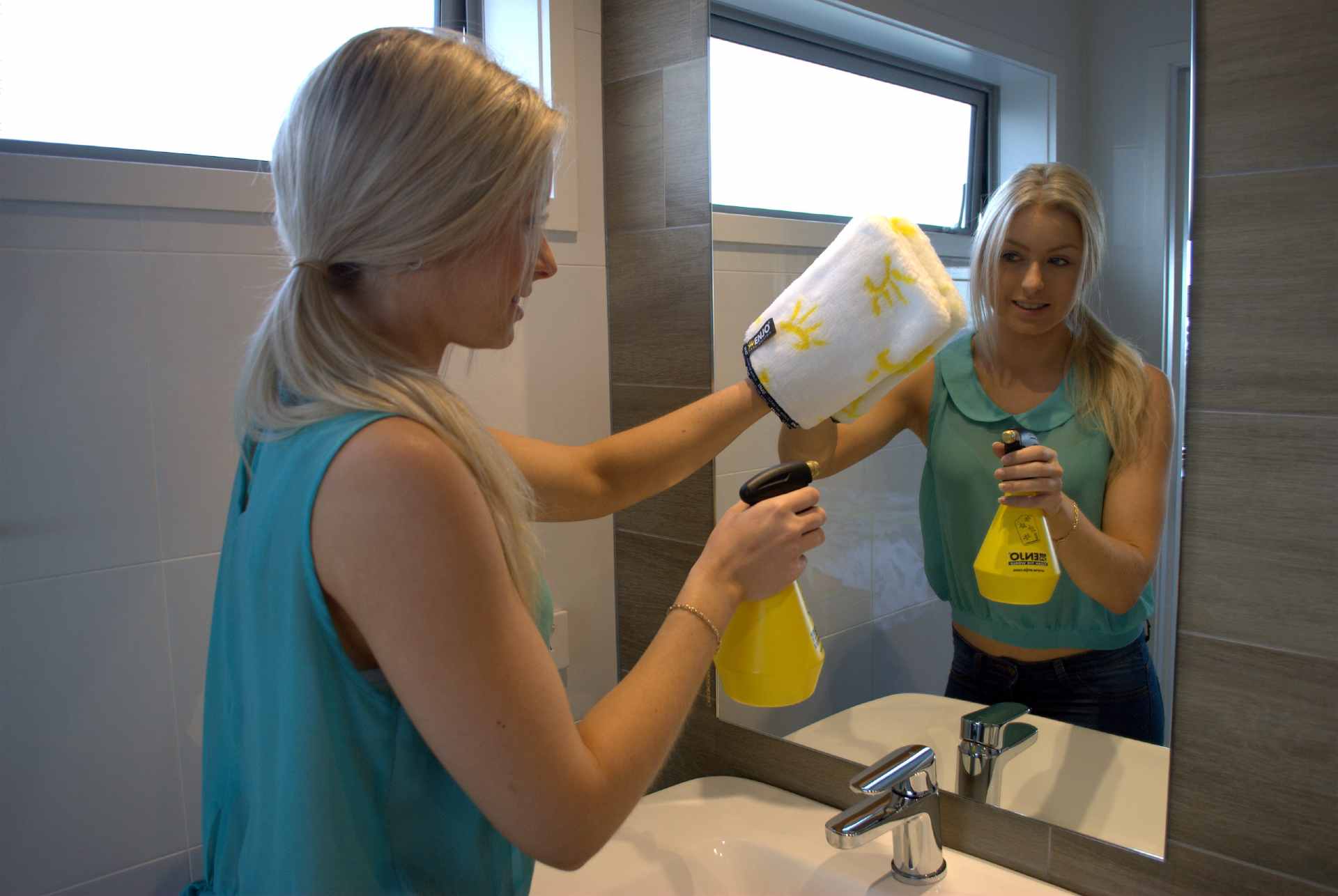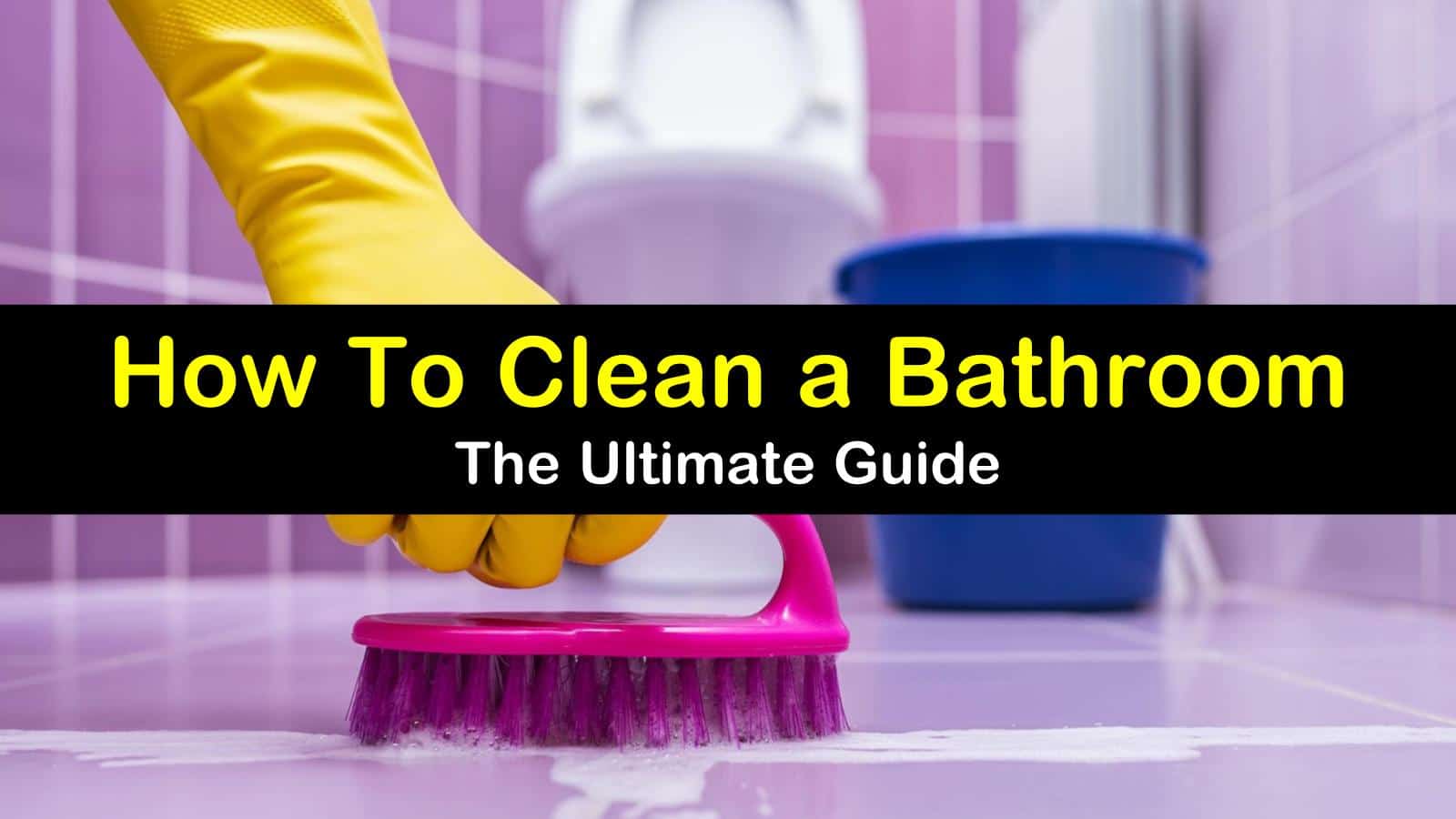The Importance of Natural Cleaning: How To Clean Your Bathroom Without Harsh Chemicals

You may be used to grabbing a bottle of bleach or an all-purpose cleaner from the supermarket shelf, but did you know that these harsh chemicals can pose risks to your health and the environment? Switching to natural cleaning methods is a simple yet powerful way to create a healthier home for yourself and your family while minimizing your impact on the planet.
Health Risks of Harsh Chemicals
Harsh chemicals found in conventional cleaning products can be harmful to your health. Exposure to these chemicals can cause a variety of symptoms, including:
- Respiratory problems: Many cleaning products release volatile organic compounds (VOCs) that can irritate the lungs and trigger asthma attacks.
- Skin irritation: Chemicals in cleaning products can cause skin rashes, dryness, and other irritations.
- Eye irritation: The fumes from some cleaning products can irritate the eyes and even cause temporary vision loss.
- Hormonal disruption: Some chemicals in cleaning products, such as phthalates, have been linked to hormonal disruption and other health problems.
Environmental Impact of Conventional Cleaning Products
Conventional cleaning products not only harm our health but also contribute to environmental pollution.
- Water pollution: Many cleaning products contain chemicals that can contaminate water sources.
- Air pollution: VOCs released from cleaning products contribute to air pollution, which can have negative effects on human health and the environment.
- Plastic waste: Cleaning product packaging often ends up in landfills, where it can take hundreds of years to decompose.
Benefits of Natural Cleaning, How to clean your bathroom without harsh chemicals
Natural cleaning methods offer a healthier and more sustainable alternative to conventional cleaning products.
- Reduced health risks: Natural cleaning products are made with ingredients that are less likely to irritate the skin, eyes, and respiratory system.
- Reduced environmental impact: Natural cleaning products are biodegradable and do not contain harsh chemicals that can pollute water or air.
- Cost-effective: Many natural cleaning products can be made at home using simple, affordable ingredients.
Essential Cleaning Supplies
/cleaning-bathroom-sink-GettyImages-dv1449036-566b487a3df78ce16163bfba.jpg)
You don't need a cabinet full of harsh chemicals to have a sparkling clean bathroom. Many everyday ingredients are effective and safe for cleaning. Here's a guide to common household ingredients that can be used for effective bathroom cleaning.
Common Household Ingredients for Bathroom Cleaning
| Ingredient | Use | Safety Precautions | Availability |
|---|---|---|---|
| Baking Soda | Deodorizer, abrasive cleaner, grease cutter | Avoid contact with eyes, keep out of reach of children. | Grocery stores |
| White Vinegar | Disinfectant, removes mineral deposits, deodorizer | Dilute with water before using, avoid contact with eyes, keep out of reach of children. | Grocery stores |
| Lemon Juice | Natural disinfectant, removes stains, freshens air | Avoid contact with eyes, keep out of reach of children. | Grocery stores |
| Castile Soap | All-purpose cleaner, effective for cleaning floors, sinks, and tubs | Keep out of reach of children. | Grocery stores, health food stores |
| Hydrogen Peroxide | Disinfectant, stain remover, whitener | Dilute with water before using, avoid contact with eyes, keep out of reach of children. | Drugstores |
| Olive Oil | Polishes surfaces, removes water spots | Keep out of reach of children. | Grocery stores |
Essential Cleaning Tools
A few basic tools will make cleaning your bathroom easier and more effective. Here's a list of essential tools:
- Microfiber cloths: These cloths are highly absorbent and effective at removing dirt and grime. They are also reusable, making them a more sustainable option than paper towels.
- Sponges: Sponges are versatile and can be used for a variety of cleaning tasks, from scrubbing the sink to wiping down surfaces.
- Scrub brushes: Scrub brushes are essential for tackling tough stains and grime, especially in the shower and bathtub.
- Squeegee: A squeegee is a handy tool for cleaning shower doors and windows, preventing water spots and keeping surfaces clear.
- Toilet brush: A toilet brush is a must-have for cleaning the toilet bowl.
- Bucket: A bucket is useful for mixing cleaning solutions and holding water for rinsing.
Cleaning the Toilet

The toilet is one of the most frequently used fixtures in your bathroom, and it can be a breeding ground for bacteria and germs. Fortunately, you can clean your toilet effectively using natural methods that are safe for your family and the environment.
Cleaning the Toilet Bowl
To clean the toilet bowl, you will need a few basic supplies, including baking soda, white vinegar, and a toilet bowl brush. Start by sprinkling a cup of baking soda into the toilet bowl, followed by a cup of white vinegar. The mixture will fizz and create a cleaning action. Let the mixture sit for 15-20 minutes, then scrub the bowl with your toilet bowl brush, paying special attention to any stains or buildup. Flush the toilet and repeat the process if necessary.
Removing Stains
For stubborn stains, you can try using a paste made from baking soda and water. Apply the paste to the stain and let it sit for a few hours, then scrub with your toilet bowl brush. You can also use a lemon to remove stains. Simply cut a lemon in half and rub the cut side against the stain. The citric acid in the lemon will help to break down the stain.
Disinfecting the Toilet Bowl
To disinfect the toilet bowl, you can use a solution of white vinegar and water. Mix equal parts white vinegar and water in a spray bottle, and spray the solution inside the toilet bowl. Let the solution sit for a few minutes, then scrub the bowl with your toilet bowl brush. Flush the toilet to rinse away the solution.
Cleaning the Toilet Seat and Lid
To clean the toilet seat and lid, you can use a solution of white vinegar and water. Mix equal parts white vinegar and water in a spray bottle, and spray the solution onto the seat and lid. Wipe the surfaces clean with a microfiber cloth. You can also use a natural disinfectant spray, such as a solution of tea tree oil and water.
Preventing Future Toilet Bowl Stains
To prevent future toilet bowl stains, it is important to clean your toilet regularly. You should also avoid flushing anything down the toilet that is not biodegradable, such as paper towels, tissues, or wipes.
Cleaning the Sink and Countertop

The sink and countertop are among the most frequently used surfaces in your bathroom, making them prone to dirt, grime, and bacteria. Keeping these areas clean is essential for maintaining a hygienic bathroom environment. Natural cleaning agents are effective in removing dirt and grime without harsh chemicals.
Cleaning the Sink and Countertop with Natural Cleaning Agents
Using natural cleaning agents is a safe and effective way to clean your sink and countertop. Here are some natural cleaning agents you can use:
- Baking soda: Baking soda is a versatile cleaning agent that can effectively remove stains and deodorize surfaces. You can use a paste of baking soda and water to scrub the sink and countertop, or sprinkle baking soda directly onto the surface and scrub with a damp sponge.
- Vinegar: Vinegar is an acidic solution that can effectively dissolve mineral deposits and grime. You can use a mixture of equal parts water and vinegar to clean the sink and countertop, or spray vinegar directly onto the surface and wipe with a damp cloth.
- Lemon juice: Lemon juice is a natural disinfectant and deodorizer that can also help to brighten surfaces. You can use a mixture of lemon juice and water to clean the sink and countertop, or rub a lemon wedge directly onto the surface.
Removing Stubborn Stains and Watermarks
Stubborn stains and watermarks can be challenging to remove, but with a little effort and the right cleaning agents, you can restore your sink and countertop to their original shine.
- Baking soda paste: A paste made from baking soda and water can effectively remove stubborn stains and watermarks. Apply the paste to the affected area and let it sit for a few minutes before scrubbing with a damp sponge.
- Vinegar and salt: A mixture of vinegar and salt can help to remove hard water stains and mineral deposits. Apply the mixture to the affected area and let it sit for a few minutes before scrubbing with a damp sponge.
- Lemon juice and salt: A mixture of lemon juice and salt can also help to remove stubborn stains and watermarks. Apply the mixture to the affected area and let it sit for a few minutes before scrubbing with a damp sponge.
Disinfecting the Sink and Countertop
Disinfecting your sink and countertop regularly is essential for preventing the spread of bacteria and germs. You can disinfect these surfaces with a solution of water and vinegar, or by using a commercial disinfectant spray.
It is important to disinfect your sink and countertop after cleaning, as this helps to kill any remaining bacteria or germs.
Common Queries
How to clean your bathroom without harsh chemicals - What are some natural disinfectants?
White vinegar, tea tree oil, and hydrogen peroxide are effective natural disinfectants.
Can I use baking soda to clean my showerhead?
Yes, baking soda can help remove mineral buildup from your showerhead. Mix baking soda with water to create a paste, apply it to the showerhead, and let it sit for 30 minutes before rinsing.
How often should I clean my bathroom?
It's best to clean your bathroom weekly, focusing on the toilet, sink, and shower. You can also do a more thorough cleaning monthly, including scrubbing the floors and wiping down walls.
